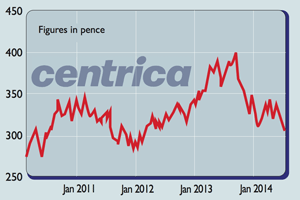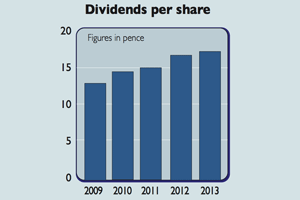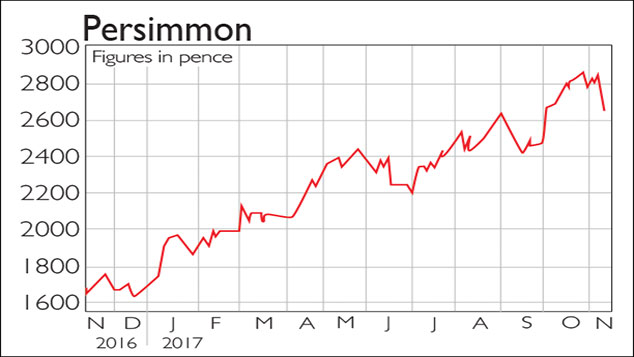Shares in focus: Centrica’s comeback trail
Utility company Centrica has had a rough ride. But with the shares offering a decent dividend yield, should you still buy in? Phil Oakley investigates.
Get the latest financial news, insights and expert analysis from our award-winning MoneyWeek team, to help you understand what really matters when it comes to your finances.
You are now subscribed
Your newsletter sign-up was successful
Want to add more newsletters?

Twice daily
MoneyWeek
Get the latest financial news, insights and expert analysis from our award-winning MoneyWeek team, to help you understand what really matters when it comes to your finances.

Four times a week
Look After My Bills
Sign up to our free money-saving newsletter, filled with the latest news and expert advice to help you find the best tips and deals for managing your bills. Start saving today!
The utility has had a rough ride, but the bad news is in the price, says Phil Oakley.
Utility companies such as Centrica are supposed to be relatively safe investments. We all need to heat and light our homes and that should mean a utility's profits are quite predictable which should in turn lead to chunky dividends that grow in line with inflation.
However, in recent years utilities haven't been as safe as you might expect.That's because back in the late 1990s, the government decided to remove price controls from the household electricity and gas markets. Competition, we were told, would lead to lower prices.
MoneyWeek
Subscribe to MoneyWeek today and get your first six magazine issues absolutely FREE

Sign up to Money Morning
Don't miss the latest investment and personal finances news, market analysis, plus money-saving tips with our free twice-daily newsletter
Don't miss the latest investment and personal finances news, market analysis, plus money-saving tips with our free twice-daily newsletter
Sadly, it seems that competition hasn't worked too well. That's largely down to the wholesale gas price, which determines the price of electricity most of the time.
As Britain's own supplies of North Sea gas have steadily dwindled, the electricity industry has become more reliant on gas from elsewhere. The price of this gas has been very volatile, yet household bills have continued to rise nonetheless.
As a result consumers no longer trust the big energy suppliers. Many folk have noticed that bills are very quick to go up when the wholesale gas price rises, but are very slow to come down when it falls.
It makes some people think they are being ripped off. Ofgem, the regulator, has had enough and has referred Centrica andthe other energy suppliers to the competition authorities.
Investors don't like this and Centrica's share price has been hammered.Yet, buying shares at times of uncertainty can be a smart thing to do as there are lots of sellers and not many buyers. You just have to be patient enough to wait for things to get better. So has Centrica becometoo cheap?
The outlook
The chief executive, finance director, and head of British Gas are all leaving soon. These departures may partly have been triggered by the fact that Centrica has become a political football in the run-up to the general election.
So on the face of it, Centrica hasn'tgot too much going for it. A competition investigation will probably lasttwo years, while the possibility of a Labour government and an energy-price freeze will frighten some prospective investors.
Then there's the fact that as Britain's biggest energy supplier, with 15 million customers, it has a lot to lose. Some customers have already switched to smaller providers, such as Ovo and First Utility, and more are expected to follow.
Centrica's gas power stations are losing money due to cheap coal prices while its American business is struggling to grow and its profits will suffer when they are translated back into pounds. Former money spinners, such as its Rough gas storage facility, have fallen on hard times as well.
However, all this gloom and doomcould actually be very good news ifyou haven't bought any shares yet.That's because a lot of the bad news is probably already reflected in Centrica's share price, which is hovering close to its 52-week low.
A competition inquiry may decide thatbig energy companies such as Centrica must be split up into separate businesses for generation and supply. This could begood news, as Centrica's separate businesses might be worth more than their current stock market value as one company.
Centrica has built up its own supplies of gas in recent years. It has invested heavily in places such as the North Sea, Norway and Canada, as well as making its first foray into shale gas in the UK.
These assets have been used to supply its own energy businesses and to provide a hedge against price changes. But they would be sure to attract buyers if they were put up for sale.
The same could be said for its businesses that supply energy to consumers. It may end up with slightly less than 15 million customers in the years ahead, but large customer bases have significant value in the right hands.
Centrica also has a very profitable home services business, which provides boiler, central heating, plumbing and drains insurance.
Should you buy the shares?
Uncertainty in the UK energy market has meant that investment is being scaled back. This should result in a big boost to Centrica's free cash flow, which could end up in shareholders' hands.
Finally, it's also worth noting that City analysts are not forecasting a dividend cut either. In fact, Centrica remains committed to growing its dividend payments by more than the rate of inflation. The shares trade on an appetising 5.8% yield, which means that you are being paid to wait for things to get better.
Verdict: a buy for the brave
Centrica (LSE: CNA)


Directors' shareholdings
Get the latest financial news, insights and expert analysis from our award-winning MoneyWeek team, to help you understand what really matters when it comes to your finances.
Phil spent 13 years as an investment analyst for both stockbroking and fund management companies.
-
 Should you buy an active ETF?
Should you buy an active ETF?ETFs are often mischaracterised as passive products, but they can be a convenient way to add active management to your portfolio
-
 Power up your pension before 5 April – easy ways to save before the tax year end
Power up your pension before 5 April – easy ways to save before the tax year endWith the end of the tax year looming, pension savers currently have a window to review and maximise what’s going into their retirement funds – we look at how
-
 Despite surging profits investors should avoid Centrica shares
Despite surging profits investors should avoid Centrica sharesTips Profits in the energy sector are booming but Centrica shares are struggling. Rupert Hargreaves explains why he’d avoid the stock.
-
Centrica: the only way is up
News Centrica's share price has fallen by nearly 90% over the past few years. New finance director Chris O’Shea will hope to reverse that.
-
 Will Centrica slash dividends?
Will Centrica slash dividends?Features Finances are tight and payouts are under threat. The gas supplier’s new boss faces some tricky decisions, says Alice Gråhns.
-
 Is it time to buy Centrica for its huge dividend?
Is it time to buy Centrica for its huge dividend?Features Shares in Centrica, owner of British Gas, come with a dividend yield of 8% after the share price fell dramatically last week. So should you buy in?
-
 If you’d invested in: Persimmon and Centrica
If you’d invested in: Persimmon and CentricaFeatures Persimmon is the UK’s second-largest housebuilder. In November, it said the total sales rate per site for the third quarter was in line with the same period last year.
-
Sector in the news: The energy companies
Features Public anger has been directed at energy companies in recent days, says Phil Oakley. Yet, these two providers could be worth buying for the long term.